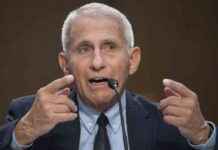Steven Bartlett’s Dangerous Health Misinformation on Diary of CEO Podcast
BBC’s Diary of a CEO podcast, hosted by Steven Bartlett, has come under fire for spreading harmful health misinformation, a recent investigation reveals. The podcast, initially focused on entrepreneurship and business, has shifted its content to health-related topics in recent months, drawing in leading experts in various fields to discuss health issues with little to no challenge.
The Investigation Findings
An analysis by BBC World Service uncovered that out of 15 health-related podcast episodes examined, each contained an average of 14 harmful health claims that contradicted established scientific evidence. Guests on the podcast have been promoting dangerous ideas, such as treating cancer with a keto diet instead of proven medical treatments, spreading anti-vaccine conspiracies, and claiming that certain disorders can be reversed with diet.
Experts like cancer research professor David Grimes, public health professor Heidi Larson, NHS diabetes adviser Dr. Partha Kar, and surgeon Dr. Liz O’Riordan flagged these misleading claims as potentially harmful to listeners’ health. Dr. Grimes emphasized that following such advice could lead to negative health outcomes and posed a significant risk.
Expert Opinions and Concerns
Dr. Grimes from Trinity College Dublin highlighted the dangers of spreading misinformation under the guise of sharing information, stressing that it undermines public health and erodes trust in evidence-based medicine. He warned against restrictive diets during cancer treatment, citing potential risks to patient health if not following recommended medical advice.
Prof. Larson expressed concerns that the sensationalized health claims made on the podcast could steer people away from proven medical treatments and evidence-based healthcare practices. She emphasized the importance of relying on credible sources for health information to avoid potential harm.
Financial Interests and Ethical Concerns
The investigation also shed light on Mr. Bartlett’s financial interests in health and wellness companies, raising questions about potential conflicts of interest. His investments in companies like Huel, a meal replacement company, and Zoe, a personalized nutrition program, have led to accusations of promoting products without disclosing his financial ties.
Moreover, the podcast’s promotion of guests with controversial health claims, coupled with Mr. Bartlett’s own investments in health-related ventures, has sparked concerns about the podcast’s credibility and ethical standards. The lack of regulatory oversight for podcasts in the UK, unlike traditional media platforms, allows such misinformation to spread unchecked.
In light of these findings, the need for critical evaluation of health information shared on popular media platforms like podcasts becomes essential to safeguard public health and prevent the dissemination of harmful misinformation. It is crucial for listeners to be vigilant about the sources of health information they consume and consult qualified medical professionals for accurate guidance on health-related matters.

















